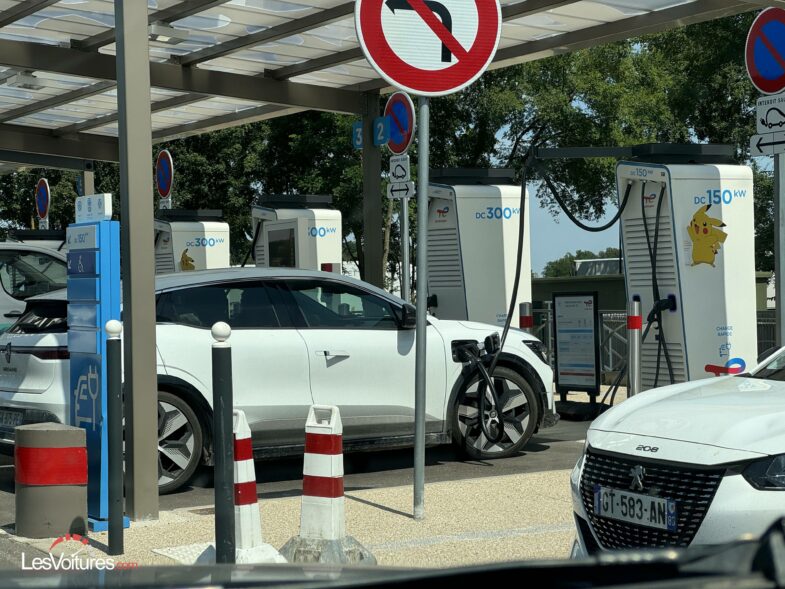On this January 1, 2025, let’s start by wishing everyone an excellent year 2025. You are probably aware that from January 1, 2035, in Europe, the sales of new gasoline, or other vehicles, thermal and hybrid, will be banned. In 10 years, an enormous change is expected to occur for the automotive market as well as for potential buyers of a new vehicle. In 10 years, in Europe, only electric cars will be purchasable as new cars. However, at the very beginning of this new year, the goal set by the European Union seems difficult to achieve. 10 years is both short and long…
For the European automotive market, while waiting for the 2024 sales figures, 2025 is the year of “all dangers”. Indeed, in Europe, the sales of electric cars have not met the expected levels for automakers (-5.4% from January to November 2024 – source: ACEA). However, the latter have invested heavily in the development of 100% electric models for years. Is 2035 too early to force European buyers of a new mobility tool to switch to electric cars, making them “forget” new thermal cars? Let’s clarify that the EU has nonetheless planned a review clause that should be studied in Brussels in 2026.

For months now, a large majority of automakers have revised their 100% electric strategy by announcing the arrival of new hybrid engines on the European and even global markets. Indeed, HEV (Hybrid Electric Vehicles) were the most popular with buyers in 2024 (+19.7% from January to November 2024 – source: ACEA). This will undoubtedly be confirmed once again in the coming days with the publication of the 2025 car sales figures for Europe. Note that the situation is very different regarding the sales of electric cars among the EU member states.
Faced with this situation, to preserve European automakers, the EU decided at the end of October 2024 to tax Chinese automakers through countervailing duties. What impact will this decision have on the sales of electric cars in Europe in 2025? The question is posed. In France, let’s recall that the eco-bonus was revised downward for 2025 and that electric cars “made in China” are not eligible for this same purchase aid. What is clear is that the prices of electric cars must decrease. This should be the case by 2035 as technologies will evolve, particularly in terms of range.
As of today, let’s look at the constraints related to the use of an electric car. In cities where trips are shorter and where charging stations are plentiful, the electric car is already viable. Therefore, small models should sell well in 2025 and beyond in the medium term. Automakers have understood this well, as seen with Citroën and its ë-C3 and Renault with the future version of the Renault 5 E-Tech electric, the so-called “entry-level” model with 70 kW/95 hp, promised at under $27,300 (excluding the eco-bonus), expected in 2025. It will be the Renault 5 E-Tech electric “five” trim equipped with a battery capacity of 40 kWh “Urban Range”. However, if electric car sales do not progress in the medium term in Europe, how will the EU react?
Now let’s look at another critical aspect for European automakers to manage in 2025, the CAFE (Corporate Average Fuel Economy). In simple terms, it is an annual maximum average of CO2 emissions per km that must be respected across the total production of each automaker. If this annual quota exceeds the one set by Brussels, the non-compliant automaker faces heavy fines. As the European electric car market is more than hesitant, it currently seems difficult for these same industries to meet the future CAFE 2025. Europe aims for 81 g/km CO2 emissions within the CAFE 2025 framework, compared to 95 g/km today, but the EU remains inflexible.
As recently as December 22, Luca de Meo (CEO Renault Group – CEO Ampere), also President of the Association of European Automakers (ACEA), urged the European Union to quickly reconsider its position on CAFE 2025 because the situation is more than critical:
“Without a clear political statement by the European Commission by the end of 2024, as also urged by the German, French, Italian, and other European governments, the auto industry risks losing up to $17.4 billion in investment capacity by either paying penalties, reducing production, pooling with foreign competitors, or selling electric vehicles at a loss. Waiting for the start of the Commission’s Strategic Dialogue on the future of the automotive industry or for the 2026 review of the CO2 legislation is not an option, welcome and necessary as both may be. Manufacturers need clarity now to finalize compliance strategies, making pooling arrangements and other provisions for 2025.”
In Germany, it should also be noted that Volkswagen Group will cut 35,000 jobs due to excessively high production costs and insufficient electric car sales, as mentioned earlier, following massive investments in BEV (Battery Electric Vehicles). Indeed, the German automaker ventured very early, perhaps too early, into developing an all-electric range (ID.), investing billions. Unfortunately, sales of ID. models have not followed.
Finally, the “fateful” date of January 1, 2035, which is exactly 10 years from now, is currently untenable for banning the sales of new thermal and hybrid cars. As the saying goes, “Time will tell” whether electric cars will sell well, very well, better than thermal or hybrid (HEV)/plug-in hybrid (PHEV) models in the coming years. One thing is certain and surely the most important: it is the customer who decides…
The editorial team
Photos: LesVoitures.com / The Cars News

